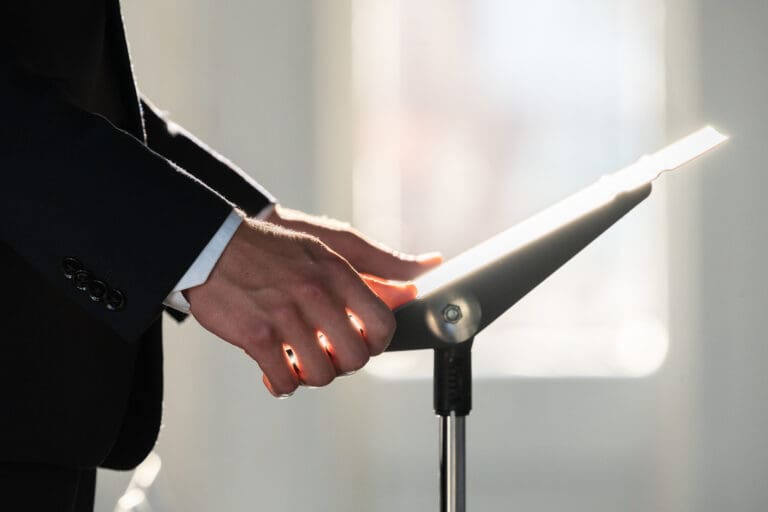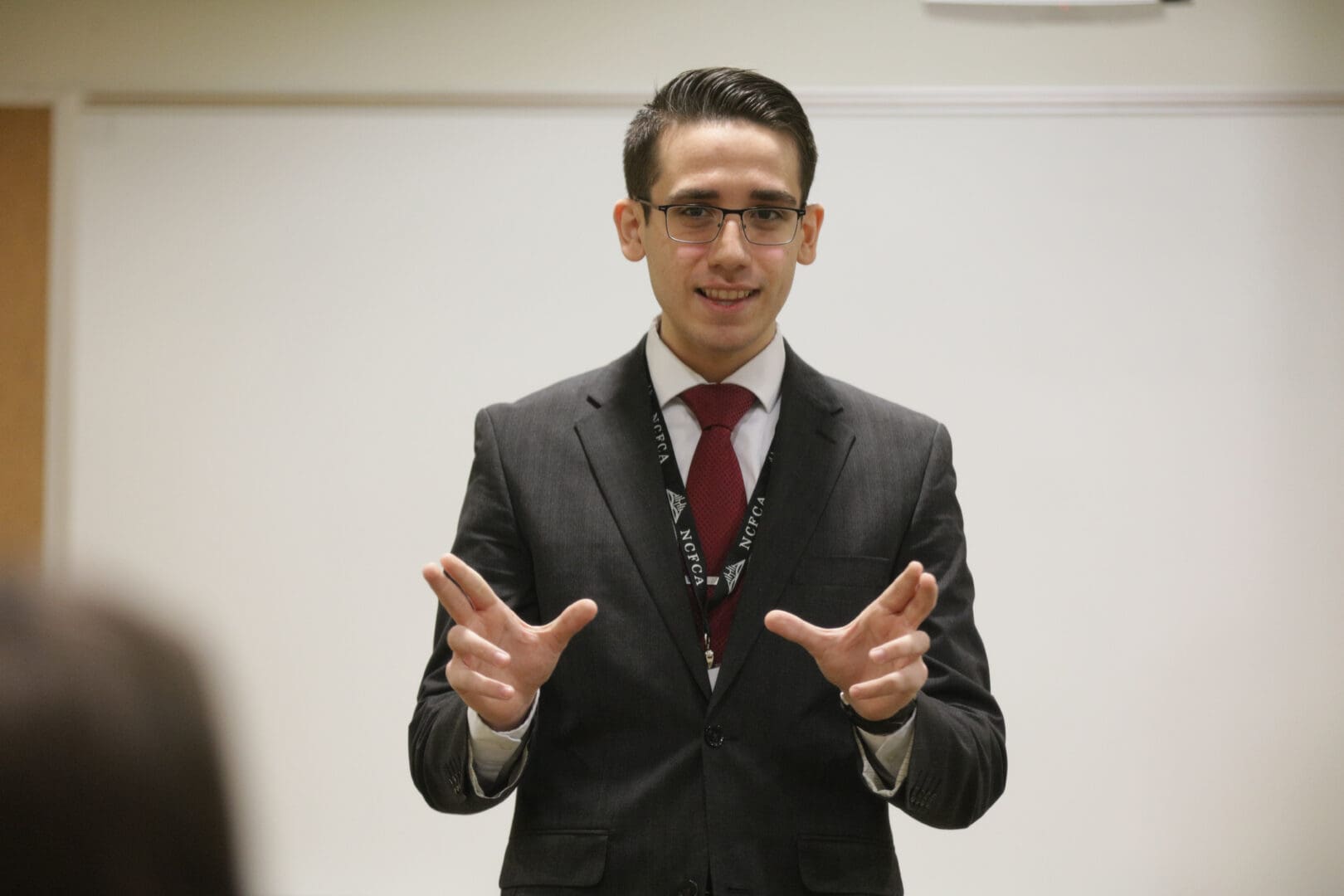Judge Policies
We value the perspectives of caring adults form a variety of backgrounds. If you are willing and qualified, we can provide the orientation and training to help you feel equipped.
Find a TournamentJudging Philosophy
In order to offer competitors varied feedback and encourage them to be universal in their impact, NCFCA values a diverse judge pool. In addition to our parent judges, we actively recruit people from all walks of life who may or may not have judging experience. We intentionally extend judging invitations to judges with worldviews which are both similar to and different from those of NCFCA competitors.
Judge Eligibility Policies
Age
A judge must be at least 18 years old, must not be currently enrolled in high school, and must not have been eligible to compete in any NCFCA event during the current season. Please direct any questions regarding a judge’s eligibility based on age, graduation, or competition eligibility status to the National Judge Coordinator at gro.ACFCN@segduJlanoitaN.
Relationship
Judges must be unrelated to the competitors they are assigned to judge and may not have coached them in that event.
Re-Judging
A judge should not judge a specific speaker more than one time in the same prepared speech or on the same side of a debate round in any given tournament. The same judge may judge a speaker in a different event or more than one time in limited preparation speeches.
Judging Conflicts
Our ability to employ best practices for avoiding judge conflicts beyond our stated eligibility policies is dependent on the number of judges available for each round. Our system will prevent most judging conflicts, but there are some factors we ask judges to keep in mind when choosing to accept a ballot.
- Please do not take a ballot with a student you know very well or have coached in the event.
- Do not take a ballot for a room where a family member is also judging. If this happens inadvertently, please contact Tournament Administration.
- Judges who have a question or have difficulty finding a ballot that seems suitable should contact tournament administration for help.
Parent judges should follow additional guidance contained in our tournament prep instructions.
Judge Decisions
All judge decisions are final as they apply to assessment of the round; however, adjudication determinations by the National Adjudication Team supersede judge assessments. All adjudication decisions are final.
Ballot Completion and Deadlines
At the end of the round, please exit the competition room to finish filling out your ballot. For in-person tournaments, please remain at the facility until your ballot is complete.
You will receive a notification indicating the time when ballots are due. We want judges to provide ample and excellent feedback; however, for the tournament to proceed in a timely manner, the ballot deadline must also be honored. Until we have all ballots returned, we cannot begin processing the next round. Therefore, please prioritize essential items on your ballot like your win/loss decision for debate and ranking speakers for both speech and debate, then provide as much additional feedback as time allows.
Additional Policy Pages
- Standards of Conduct
- Tournament Participation Requirements
- Tournament Safety
- Illness
- Recording and Photography
- Dress Code
- Check-Requirement
- Results, Adjudication, and Appeals
- Cancellation
- Tournament Authority Structure
- Competition Eligibility
- Qualification System
Affiliation & Account Setup Page
- Affiliation Fees
- Account Setup Guidelines
- Tournament Types
- Registration Fees



